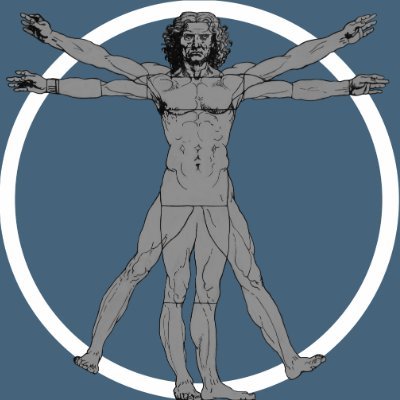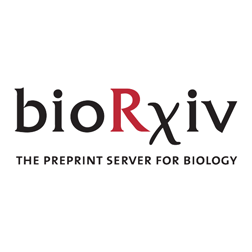
Mark Howe
@MarkHowe72
Followers
379
Following
1K
Media
1
Statuses
108
Assistant Professor in Psychological and Brain Sciences at Boston University
Boston, MA
Joined April 2016
🚨I’m excited to share that the first piece of my postdoc work with @MarkHowe72 is out! 🧵⬇️ https://t.co/UnP9OpMZxn
nature.com
Nature Communications - Functional roles of natural acetylcholine (ACh) dynamics are not fully understood. This study reveals dynamic changes in ACh release across the mouse striatum during...
4
12
34
Save the date and join us for a webinar about cholinergic interneurons, hosted by the Swedish Basal Ganglia Society. We are excited to have two distinguished speakers: Stephanie Cragg and Mark Howe. Everyone is welcome and no registration is required! https://t.co/poTf5i0ByX
0
5
12
Registration for the 2025 @MPFNeuro Neurotechniques Course closes this Wednesday! Co-directed by @Ryohei_Neuro & @denisejcai and led by an amazing team of experts, this hands-on course is a great opportunity to learn cutting-edge methods in neuroscience 🔬🧠
2
24
75
Researchers given $6 million for ground-breaking research to tackle Parkinson’s. #dopamine #acetylcholine #astrocytes #ParkinsonsDisease #openscience #collaboration
https://t.co/wK9BWSwJPs
0
4
6
Next meeting TODAY (Oct 24) at 12:15 PM in WAB 236! The speaker is Eleanor Brown (@elliesphere), a PhD student in the @MarkHowe72 Lab. Title: "Striatal dopamine release encodes trajectory errors expressed along a spatial gradient distinct from cue-based reward prediction errors".
1
2
3
Last but not least, @MaiAnh_T from @BU_Tweets shares her work on "Spatially localized coordinated dynamics of striatum-wide dopamine and acetylcholine release" #TigerBrain
0
3
19
If you're at SfN and interested in striatum-wide, cell-type specific calcium and neuromodulator dynamics during behavior there is still time to catch the posters of @ZichengZhang306 (PSTR173.09) and @elliesphere (PSTR227.14)!
0
4
17
Interested in understanding how the brain encodes and decodes biochemical signaling dynamics to orchestrate neuromodulator actions, sleep functions, or learning? My lab is recruiting postdocs and scientists. DM me to set up a meeting at #SfN24, come to our minisymposium, or email
Interested in expanding your imaging methods to fluorescence lifetime for in vivo imaging of neuronal function? Come to our mini-symposium chaired by @LavivTal and @ERSchreiter at #SfN24 on Wednesday morning.
1
3
17
Shoutout to the other co-authors and collaborators: Darcy Zi, @MaiAnh_T , @safa_bouabid, @Jack_W_Lindsey, Chinyere Godfrey-Nwachukwu, Aaquib Attarwala, Ashok Litwin-Kumar, @briandepasquale
0
0
1
We propose that trajectory error signaling in striatal neuromodulator release provides information necessary to modulate learning and ongoing behavior in real time or across learning to appropriately guide animals to reach goals during landmark based navigation.
1
0
2
Acetylcholine signaling also encodes trajectory errors, but in an opposite direction and across more restricted striatum regions than dopamine, suggesting a unique role in driving switching or learning of negative associations.
1
0
0
A computational model of reinforcement learning reproduced key features of trajectory error signaling, suggesting a potential neural substrate for trajectory error generation in midbrain dopamine neurons.
1
0
0
Trajectory errors can be flexibly computed based on both the movement of the animal relative to the cue or the cue relative to the animal, and these computations occurred with different timing.
1
0
0
Trajectory errors are widespread but spatially organized across the striatum and positive and negative errors evolve over different time courses and across distinct but overlapping regions during learning.
1
0
0
We found that dopamine and acetylcholine signaling in the mouse striatum encodes ‘trajectory errors’, reflecting whether, and how fast, an animals’ ongoing locomotion is bringing them closer or further from goal locations, based on learned associations with specific cues.
1
0
0
Navigation requires animals to continually evaluate whether their ongoing trajectory is bringing them closer or further from their goals based on external landmarks. What are the neural signals that underlie the guidance and learning of cue-guided movement trajectories?
1
0
0
Thrilled to announce the latest study from our lab, spearheaded by Ph.D student, Ellie Brown (@elliesphere)! See below for a summary of the main findings. https://t.co/xrD5s7m2KG
biorxiv.org
Goal-directed navigation requires animals to continuously evaluate their current direction and speed of travel relative to landmarks to discern whether they are approaching or deviating from their...
2
17
59
We propose that regional elevations in striatal acetylcholine drive plasticity necessary to erase learned associations of cues and action with reward, a key component of flexible, adaptive behavior.
1
0
2
We turned to our old friend dopamine and found dips that preceded acetylcholine increases in time and emerged very early during extinction, implicating an interplay between dopamine modulation and an unchanging excitatory drive on cholinergic interneurons.
1
0
0
Changes in glutamate release onto cholinergic interneurons could not explain the increases in acetylcholine during cue extinction, indicating that the signals likely emerge as a consequence of an intrastriatal mechanism, rather than from changes in an upstream region.
1
0
0








